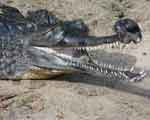SMU student journalist Bethany Suba has covered the research of SMU psychologist Dr. Jasper Smits for The Daily Campus. The August 24 article, “Study suggests exercise helps anxiety,” quotes Smits, an associate professor of psychology, on his research finding that high levels of physical activity can buffer against panic for those who are at risk.
People with an intense fear of the nausea, racing heart, dizziness, stomachaches and shortness of breath that accompany panic — known as “high anxiety sensitivity” — reacted with less anxiety to the study’s panic-inducing stressor if they had been engaging in high levels of physical activity.
“Anxiety sensitivity is an established risk factor for the development of panic and related disorders,” says Smits. “Our research suggests that this risk factor may be less influential among persons who routinely engage in high levels of physical activity.”
Read the full story in the Daily Campus.
EXCERPT:
By Bethany Suba
The Daily CampusHaley Cooper, a senior at SMU, started getting night terrors when she was 8 years old. Those night terrors soon lead to problems with anxiety plus the occasional panic attack.
Cooper says she is still affected by her anxiety today but she uses exercise as a way to distract herself when she is stressed.“Exercise is great to relieve or distract me when I’m stressed, it keeps my mind off anxiety and passes the time so I move past it,” she said.
Studies have shown that exercise has a similar effect on the body as an anti-depressant. Not only does it produce endorphins, exercise also helps improve high blood pressure, and can help prevent diabetes and arthritis.
A recent study, conducted by a team of researchers, including Jasper Smits, SMU psychologist and lead researcher, suggests that exercise may also help people with anxiety and panic attacks.
“If people exercise repeatedly they find that the sensations they were afraid of are benign. Exercise can help them overcome those panics,” Smits said.
He believes that a lot of people experience panic attacks occasionally.
Panic attacks and anxiety are caused by two main factors.
The first is biological factors, such as the fact that some people have a more sensitive alarm system and secondly, psychological factors, the way people fear bodily sensations or the panic itself, Smits said.
In his research on exercise and panic attacks, Smits and his team had a group of students who suffer from panic attacks participate in two weeks of regular exercise, three days a week.
They found that the students were afraid of the sensations associated with exercise because they are similar to those connected with panic attacks.
“When you get on a treadmill you experience the symptoms that people with panic attacks experience,” Smits said, “And when they learn they are safe they begin to overcome panic disorder.”
Read the full story in the Daily Campus.
SMU is a nationally ranked private university in Dallas founded 100 years ago. Today, SMU enrolls nearly 11,000 students who benefit from the academic opportunities and international reach of seven degree-granting schools. For more information see www.smu.edu.
SMU has an uplink facility located on campus for live TV, radio, or online interviews. To speak with an SMU expert or book an SMU guest in the studio, call SMU News & Communications at 214-768-7650.







